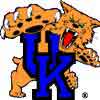Combinatorics
2010:
Advances,
Trends
and
Speculations
(CATS 2010 Workshop)
University of Kentucky,
Lexington Kentucky
March 26, 2010
Purpose
This one day workshop showcases current research advances in four of the main areas of combinatorics: Coxeter groups, topological combinatorics, polytopes and manifolds, and quasisymmetric functions. There is much cross-pollination between these areas, with techniques from Hopf algebras, commutative algebra and algebraic geometry being used to solve problems in discrete geometry and enumerative combinatorics.The cutting-edge nature of the four keynote talks will set the tone for the workshop. Between the talks the participants will have extended opportunities to interact and exchange new ideas in these key areas.
This workshop is being held in conjunction with the AMS Special Session, "Advances in Algebraic & Geometric Combinatorics".
Invited Speakers
Organizers
Richard Ehrenborg University of KentuckyMargaret Readdy University of Kentucky
Participants
Marion Anton, Centre CollegeMarisa Belk, Cornell University
Saul Blanco, Cornell University
Ben Braun, University of Kentucky
Jonathan Browder, University of Washington
Shihwei Chao, Clemson University
Eric Clark, University of Kentucky
Scott Cook, Washington University in St. Louis
Elena Dimitrova, Clemson University
Anton Dochtermann, Dartmouth College
Felix Effenberger, Universität Stuttgart
Alexander Engström, Berkeley
Stefan Forcey, Tennessee State University
Andy Frohmader, Cornell University
David Hawes, University of Kentucky
Gábor Hetyei, University of North Carolina at Charlotte
Chris Hillar, MSRI
JiYoon Jung, University of Kentucky
Eric Kahn, Bloomsburg University
Theodoros Kyriopoulos, University of Kentucky
Beth Kelly, University of Kentucky
Steve Klee, University of Washington
Carly Klivans, University of Chicago
Sam Kolins, Cornell University
Matjaž Konvalinka, Vanderbilt University
Manoj Kummini, Purdue University
Lori Layne, Clemson University
Aaron Lauve, Texas A&M University
Carl Lee, University of Kentucky
Kurt Luoto, University of British Columbia
Matthew Macauley, Clemson University
Sonja Mapes, Duke University
Uwe Nagel, University of Kentucky
Eran Nevo, Cornell University
Megan Owen, North Carolina State University
Pasha Pylyavskyy, University of Michigan
Nathan Reading, North Carolina State University
Bryce Richards, Clemson University
Michael Slone, Preservation & Digital Programs, UK Libraries
Bernd Sturmfels, UC Berkeley
Rebecca Swanson, Indiana University
Ed Swartz, Cornell University
Daniel Wells, University of Kentucky
Walter Whiteley, York University
Russ Woodroofe, Washington University in St. Louis
Catherine Yan, Texas A&M University
Alex Yong, University of Illinois at Urbana Champaign
Ruriko Yoshida, University of Kentucky
Thomas Zaslavsky, Binghamton University
Matt Zeckner, University of Kentucky
Registration
Registration is free. However, we ask participants to register
by e-mailing one of the organizers.
Please indicate whether or not you will attend the workshop dinner.
Workshop Schedule (pdf)
Friday, March 26th
Classroom Building 106
9:00 am Invited address:
Sara Billey,
"A stratification of branched polymer space"
slides (pdf)
A mathematical model of polymers (from chemistry) has lead to some very interesting questions in probability and algebraic geometry. We will introduce the basic concepts, describe some new results and give several open problems. This is joint work with Dave Anderson.
10:00 am Coffee and discussion
11:00 am Invited address: Isabella Novik, "Lower bound theorems for spheres, manifolds, and pseudomanifolds" arXiv:0711.1348v4 [math.CO] & arXiv:1004.5100v1 [math.CO]
The celebrated lower bound theorem (due to Barnette, 1973 and Kalai, 1987) asserts that among all simplicial manifolds of a fixed dimension and with a fixed number of vertices, (the boundary complex) of a certain polytope, called a stacked polytope, simultaneously minimizes all the face numbers. In this talk we will discuss various strengthenings and generalizations of this theorem for the classes of (i) balanced simplicial spheres, (ii) general simplicial manifolds with and without boundary, and (iii) certain pseudomanifolds with isolated singularities. We will also briefly outline several commutative algebra techniques and new results that are needed for the proofs. Part (i) is joint with Michael Goff and Steve Klee; parts (ii) and (iii) are joint with Ed Swartz.
12:00 pm Lunch
2:00 pm Invited address: Patricia Hersh, "A combinatorial topological toolkit for stratified spaces" arXiv:0711.1348v4 [math.CO]
There are quite a few stratified spaces, i.e., spaces made of pieces each homeomorphic to $R^n$ for some n, of current interest in such areas as combinatorial representation theory, (real) Schubert calculus, algebraic statistics, and total positivity theory, the last of which are closely related to the theory of canonical bases and the theory of cluster algebras. A common feature of these spaces is that they may often be regarded as the image of a map from a much simpler space of parameters. I will discuss some recently developed tools for determining topological structure of such spaces in a rather strong sense, namely homeomorphism type. This will include topological collapsing lemmas as well as a new criterion for determining whether a finite CW complex is regular with respect to a choice of characteristic maps. While the proofs are topological, using these tools can be essentially combinatorial, as I will illustrate on the main application to date.
3:00 pm Coffee and discussion
4:00 pm Invited address: Stephanie van Willigenburg, "Quasisymmetric refinements of Schur functions" slides (pdf)
In this talk we introduce a basis for quasisymmetric
functions, called quasisymmetric Schur (QS)
functions, which partition Schur functions
in a natural way. Furthermore, we show how
these QS functions refine many
Schur function properties including
* Kostka numbers
Extending the definition of QS functions, we
define skew QS functions, which likewise partition
skew Schur functions. We observe how these
skew functions arise in the study of both the
noncommutative Schur functions of
Rosas-Sagan, and the unrelated ones of
Fomin-Greene.
This is joint work with Christine Bessenrodt,
Jim Haglund, Sarah Mason, and especially Kurt
Luoto, who will speak in the AMS Special Session
on a noncommutative Littlewood-Richardson rule
arising from skew QS functions
and their relation to free Schur functions.
* Pieri rules
* The Littlewood-Richardson rule.
6:00 pm Workshop dinner: Rincon Mexicano, 818 Euclid Avenue
Saturday and Sunday, March 27th -- 28th
See: Advances in Algebraic & Geometric Combinatorics

|
|
We would also like
to thank the University of Kentucky Department of Mathematics
for partial support of this workshop.
Last updated May 10, 2010
